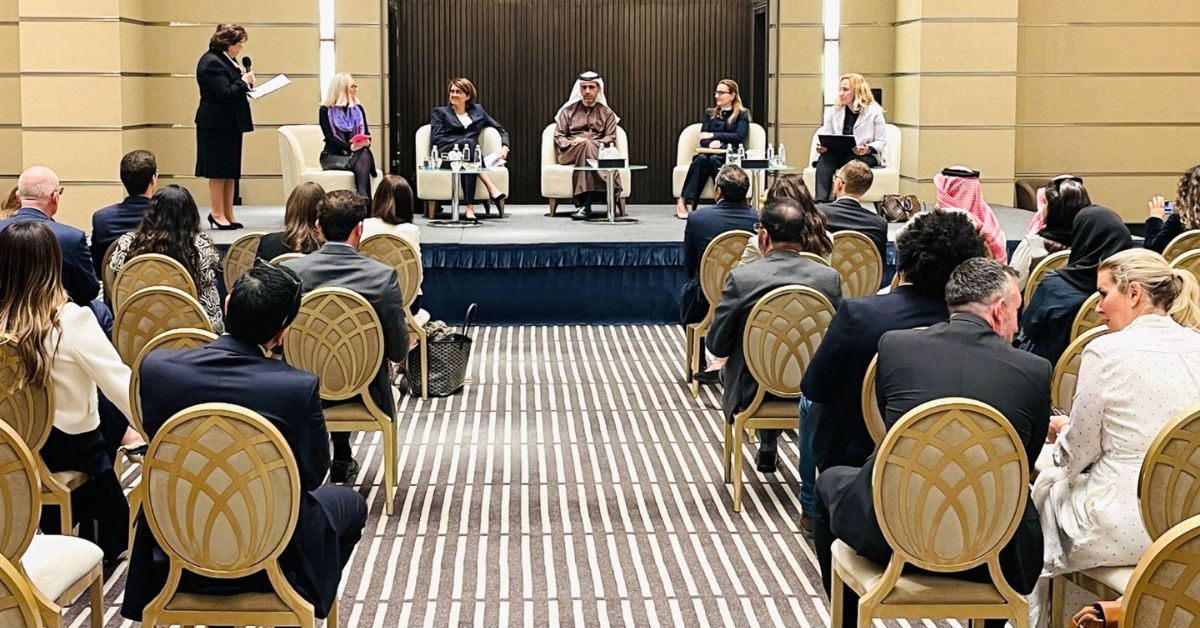RIYADH — Embracing diversity and equity in the traditionally male-dominated sector of arbitration has been a long and often challenging journey for the legal community worldwide. However, commendable efforts have been made to attract women professionals to the sector, with one of the most notable examples found in the Kingdom of Saudi Arabia. Here, the strategic push for female representation across the Saudi workforce and the empowerment of women are key pillars of the Kingdom’s Vision 2030 plan.
Launched in 2016, the Arab world’s largest economy initiated the Vision 2030 program to diversify away from a reliance on fossil fuels, setting an ambitious goal to increase the share of women in the workforce from 22 percent to 30 percent by the end of the program. Buoyed by a number of landmark government policies and social liberalization, this target was surpassed seven years ahead of schedule, with female workforce participation among Saudi nationals surging to a commendable 35 percent by the end of 2022, according to the Atlantic Council.
The Vision 2030 program has also helped shatter many so-called glass ceilings, launching Saudi Arabia’s first female international referee appointed by FIFA, the first female astronaut into space, and the first female train drivers. Indeed, Vision 2030 presents an unprecedented opportunity for women in Saudi Arabia, creating a new generation of female trailblazers in business, government, and the legal profession who are role models for future generations. A significant number of these trailblazers are in the sector of arbitration, making vital contributions to the evolving practice of law and thereby creating an expanded role for women in dispute resolution in the Kingdom.
I recently had the opportunity to participate in a panel discussion entitled “Diversity in the KSA Disputes Landscape and Beyond,” as part of Riyadh International Disputes Week. The discussion offered invaluable insights into the positive shift towards a more open and diverse disputes community in Saudi Arabia and the wider GCC region and provided a deep dive into the rapidly evolving role of women in the field of arbitration in the Kingdom.
But with all the positivity right now around the opportunity for women in the region, especially in arbitration, does that mean we are there yet? Certainly not – a great deal of work lies ahead to achieve true gender parity in arbitration, not just in the GCC, but globally.
Given its history as a male-dominated field, nobody can realistically expect equal representation in the short term in arbitration—particularly in Saudi Arabia, where the sector is still in its early stages. However, the progressive momentum generated in the past decade fills us with positivity and reassurance in the Kingdom, where we have seen the first cohort of female lawyers graduate in 2008, the first female lawyers admitted to the courts in 2013, and the first female arbitrator appointed by the Saudi Center for Commercial Arbitration in recent years. These milestones are particularly commendable given that “equal representation” remains a distant goal for the international arbitration industry.
As the arbitration sector gains traction and the volume of disputes, especially in the construction field, is expected to rise in the near term, significant opportunities emerge for female arbitrators in Saudi Arabia. To meet this demand, it is crucial to create tailored training for women. Some female arbitrators may benefit from segregated, female-focused training and networking events where they can comfortably discuss challenges and barriers to career progression. Such events offer a valuable opportunity to develop essential soft skills and build confidence, which can help women advance in their arbitration careers.
Female lawyers also need to gain their fair share of subject matter expertise and client exposure—it is important to acknowledge that they cannot simply leap into becoming arbitrators. Therefore, an entire ecosystem in the Kingdom needs to evolve to enable gender equality in arbitration, necessitating the involvement of several stakeholders to create a sufficient pool of qualified female arbitrator talent. This process is thus a marathon, not a sprint—and the arbitration sector requires support from every quarter to achieve this.
Some responsibility for developing the role of women in arbitration falls on men, especially those in prominent positions at law firms and companies in the region. They have a duty to champion young women who are future leaders in the arbitration field and to make space for them in the industry.
Other actions toward promoting gender equality in arbitration include actively ensuring that teams are representative of both genders, implementing unconscious bias training, and addressing concerns over harassment and appropriate behavior in the workplace. Leaders should also be wary of ‘manels’—the over-representation of men speaking at conferences—and strive for equal representation as much as possible.
By adopting such concerted strategies while celebrating the rise of women arbitrators in the Kingdom, the sector can become a fundamental part of empowering women and shaping the foundation of the new Saudi economy. This has the potential for a transformative impact on the region’s business and social environments.
Natalia Barroso is Director of FTI Consulting in the Middle East.
The opinions expressed are those of the author and may not reflect the editorial policy or an official position held by TRENDS.








